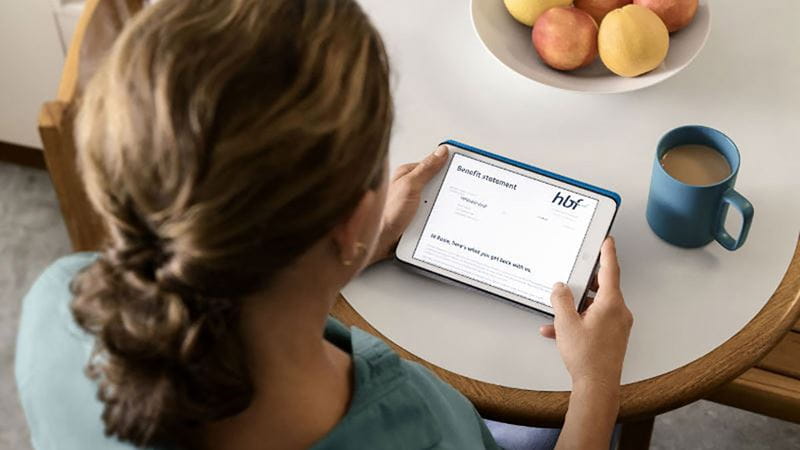Blog article
Elective surgery 101: What to eat and drink before surgery

While it may seem that "you are what you eat" is little more than a tongue-in-cheek mantra, it actually underscores an important truth: the right dietary choices can support our body’s healing process, boost our immune system, and stabilise blood sugar levels, while poor nutrition and hydration can contribute to complications from surgery and slow recovery.
In this blog, we cover essential pre-surgery dietary and hydration tips to help you optimise your health and prepare your body for the best possible outcome.
Why does pre-surgery nutrition matter?
Supports healing: Our bodies need adequate nutrients to support effective wound healing, especially protein, carbohydrates, fats, l-arginine, vitamin c, vitamin a, zinc and iron.1
Boosts immune function: Good nutrition, especially adequate intake of vitamin a, vitamin c and iron, helps our body to effectively fight infections.2
Regulates blood sugar levels: Maintaining stable blood sugar levels through balanced nutrition helps manage stress on our body during and after surgery, especially for those who are diabetic or pre-diabetic.3
Why does pre-surgery hydration matter?
Maintains fluid balance: Adequate hydration helps maintain our body’s fluid balance, which is critical for normal cellular function and recovery post-surgery.4
Supports kidney function: Staying hydrated supports kidney function and helps our bodies to absorb medications more effectively and flush out infection-causing bacteria.5
Prevents dehydration: Dehydration can lead to complications such as low blood pressure and impaired organ function. By staying properly hydrated pre-surgery, you can help minimise these risks.6
Pre-surgery dietary tips
1. Follow your specialist’s instructions
The recommendations in this blog are meant as a general guide only, with your specific dietary instructions depending on your medical history, type of surgery, and overall health. Always follow the instructions you’ve received from your specialist – they know you best!
2. Focus on balanced meals
In the days leading up to your surgery, aim for well-balanced meals that include the following:
- Lean proteins: Like beef, lamb, veal, pork, kangaroo, lean (lower salt) sausages, chicken, turkey, duck, emu, goose, bush birds.7
- Whole grains: Like brown rice, quinoa, and whole wheat products.8
- Fruits and vegetables: Focus on those high in vitamin c, vitamin a, zinc and iron to help with wound healing and immune function, like citrus fruits, strawberries, mangos, broccoli, carrots, potatoes, corn, avocado, and leafy greens like spinach and silverbeet.
3. Avoid high-fat and high-sugar foods
While this should be something we try to do day-to-day, it’s more important than ever to minimise your intake of foods high in unhealthy fats and sugars in the lead up to surgery, such as fried foods, which can contribute to inflammation9 and slower digestion10 and sugary snacks and drinks, which can lead to blood sugar spikes and crashes, impacting overall health11.
4. Reduce sodium intake
Excess sodium can lead to fluid retention and high blood pressure, which may complicate surgery and recovery. Choose fresh, unprocessed foods and limit your intake of salty snacks and processed foods.12
5. Stay Hydrated
Aim to drink plenty of water in the days leading up to your surgery. As a general guide (where one cup is 250ml):13
- Adults need about 8-10 cups of fluid a day
- Pregnant or breastfeeding women need about 9 cups of fluid a day
- Children need between 4-5 cups and teenagers need between 6-8 cups of fluid per day
Try to also limit your intake of caffeinated and alcoholic beverages which can lead to dehydration and may interfere with your body’s fluid balance.14
6. Follow fasting instructions
It’s highly likely you’ll be instructed to fast from food and liquid for a period before surgery. This is due to the potential of pulmonary aspiration, where food and/or liquid from the stomach ends up in the lungs, which can lead to serious complications.
In the lead up to your surgery, remember to listen to your body and focus on eating a healthy, balanced diet. If you have any questions about your diet or hydration before surgery, don’t hesitate to reach out to your specialist for clarification – they’re there to help.
Looking for healthy eating advice?
- HBF diet and nutrition cover can pay benefits towards visits with a dietitian or nutritionist, who can give you expert advice on healthy food choices to optimise your health and wellbeing.
If you’re an HBF member, you can check what you're covered for by logging on to myHBF or calling us on 133 423.
1Eat Well Nutrition - Nutrition and Wound Healing
2Better Health Channel - Vitamins and minerals
3Journal of Parenteral and Enteral Nutrition - The Surgically Induced Stress Response
4World Journal of Nephrology - Fluid balance concepts in medicine: Principles and practice
5National Kidney Foundation - 6 Tips To Be “Water Wise” for Healthy Kidneys
6Healthdirect - Dehydration
7Eat for health - Lean meat and poultry, fish, eggs, tofu, nuts and seeds and legumes/beans
8Eat for health - Grain ( cereal ) foods, mostly wholegrain and / or high cereal fibre varieties
9Healthline - 5 Foods That Cause Inflammation
10Everyday Health - 11 Foods to Avoid When You're Having Digestive Problems
11Healthline - 12 Tips to Prevent Blood Sugar Spikes
12Better Health Channel - Salt
13Healthdirect - Drinking water and your health
14Healthline - Do Some Drinks Cause Dehydration?
This article contains general information only and does not take into account the health, personal situation or needs of any person. In conjunction with your GP or treating health care professional, please consider whether the information is suitable for you and your personal circumstances.



